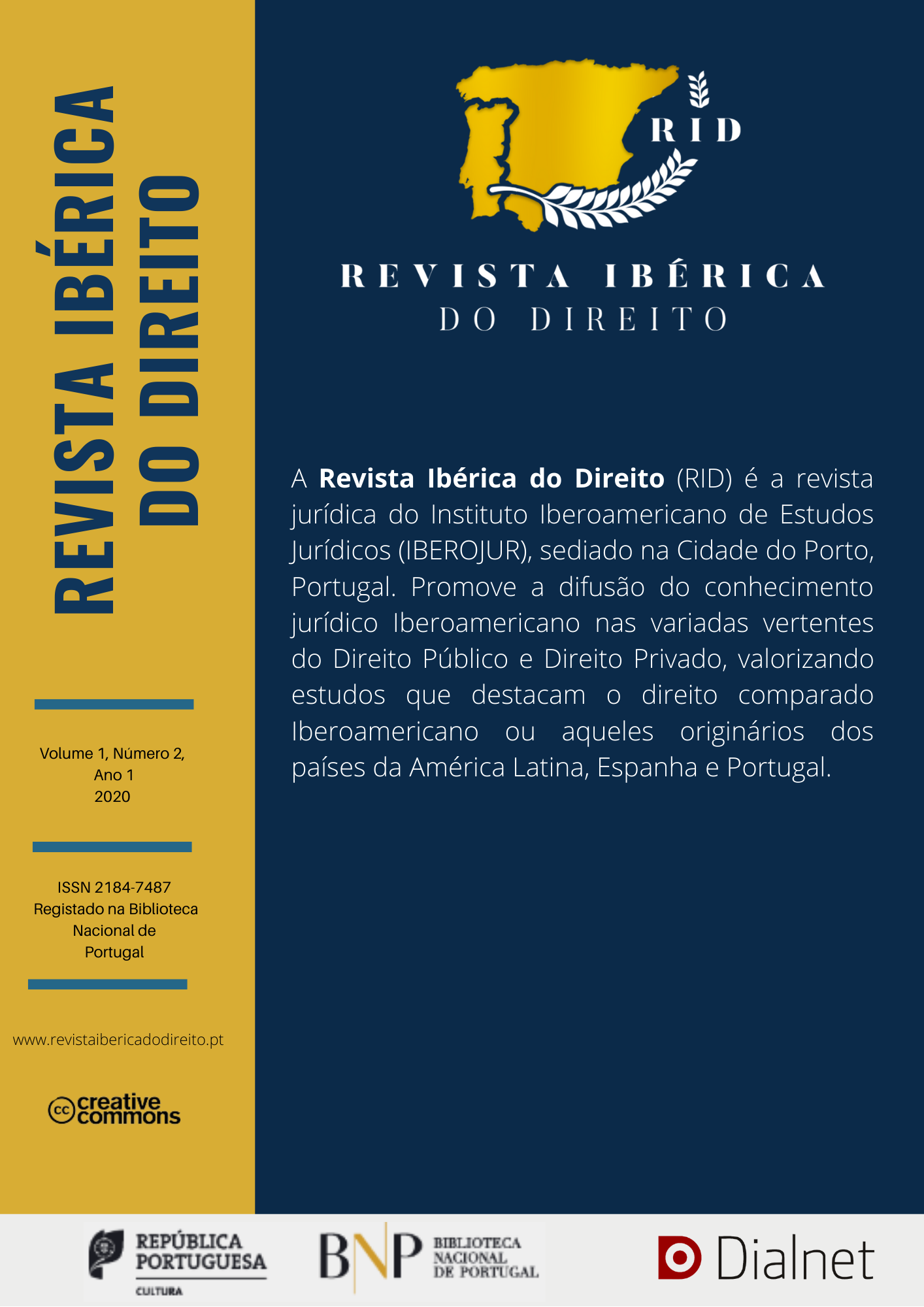Critical notes on personal testimony by videoconference
Keywords:
personal testimony, videoconference, Code of Civil ProcedureAbstract
The article examines the personal testimony by videoconference that makes reference to art. 385, §3, of the brazilian Civil Procedure Code. Although it is compatible with the efficiency pursued by Law nº 13.105/15, personal testimony by videoconference may imply a violation of norms regarding the proper production of the testimony of the party by not observance with the requirements of the deponent’s isolation and the spontaneity of the responses that this offer to the questions asked. When providing for the impossibility of the party that has not yet given its testimony to watch the testimony of the other party and, also, the prohibition that, in providing its testimony, the party should use previously prepared writings that do not fit in the notion of brief notes intended to complement clarifications, the Civil Procedure Code intended that the evidential activity should not stray from its scope. The writing aims to test a hypothesis that if the personal testimony by videoconference is not provided at the forum of county, judicial section or subsection where the part of process resides, it will be immune to any consistent control of its production, thus making the result obtained by the development of the evidence activity fragile. Regarding the problem approach related to the location of the provision of personal testimony by videoconference, thus, the research adopts the hypothetical-deductive method. As for the objective, it is exploratory and explanatory. By the techniques employed, it is bibliographic and documentary.
References
ARRUDA ALVIM NETTO, José Eduardo. Manual de direito processual civil: teoria geral do processo e processo de conhecimento. 17. ed. rev., atual. e ampl. São Paulo: Revista dos Tribunais, 2017.
BARBOSA MOREIRA, José Carlos. O novo processo civil brasileiro: exposição sistemática do procedimento. 25. ed. rev. e atual. Rio de Janeiro: Forense, 2007.
BEBBER, Júlio César. Uso de Equipamento para transmissão e recepção de sons e imagens nas audiências trabalhistas. Revista do Tribunal Regional do Trabalho da 3ª Região, Belo Horizonte, v. 62, n. 93, p. 281-290, jan./jun. 2016. Disponível em: <https://portal.trt3.jus.br/escola/institucional/revista/revista-93/@@cached-display-file/pdf_version_file/revista-93.pdf?m=2020_02_14_18_39_32>. Acesso em: 3 jun. 2020.
BRASIL. Código de Processo Civil (2015). Lei n. 13.105, de 16 de março de 2015. Código de Processo Civil. Diário Oficial da União. Brasília, 17 mar. 2015. Disponível em: <http://www.planalto.gov.br/ccivil_03/_Ato2015-2018/2015/Lei/L13105.htm >. Acesso em: 4 jun. 2020.
BRASIL. Código de Processo Civil (1973). Lei n. 5.869, de 11 de janeiro de 1973. Institui o Código de Processo Civil. Diário Oficial da União. Brasília, 17 jan. 1973. Disponível em: <http://www.planalto.gov.br/ccivil_03/leis/L5869impressao.htm >. Acesso em: 4 jun. 2020.
BRASIL. Constituição (1988). Constituição da República Federativa do Brasil. Brasília: Senado Federal, Centro Gráfico, 1988.
BRASIL. Exposição de motivos do Código de Processo Civil (Lei n. 13.105/15). In: BRÊTAS, Ronaldo C. Dias; SOARES, Carlos Henrique (Org.). Novo Código de Processo Civil: Lei n. 13.105/15 com as alterações da Lei 13.256/2016. Belo Horizonte: D’Plácido, 2016.
BUENO, Cassio Scarpinella. Curso sistematizado de direito processual civil: procedimento comum – procedimento ordinário e sumário. 4. ed. rev., atual. e ampl. São Paulo: Saraiva, 2011. v. 2. t. 1.
CAPPELLETTI, Mauro. La testimonianza della parte nel sistema dell’oralitá: contributo alla teoria della utilizzazione probatoria del sapere delle parti nel processo civile. Milano: Giuffrè, 1962. v. 1.
FREITAS, Helena. Eficiência da jurisdição: necessidade de sua (des)construção para efetivação do modelo constitucional de processo. Belo Horizonte: D’Plácido, 2019.
GÓES, Gisele Fernandes. Depoimento pessoal e confissão. In: WAMBIER, Teresa Arruda Alvim et al (Coord.). Breves comentários ao novo Código de Processo Civil. São Paulo: Revista dos Tribunais, 2015, p. 1048-1061.
MARINONI, Luiz Guilherme; ARENHART, Sérgio Cruz. Prova. 2. ed. rev. e atual. São Paulo: Revista dos Tribunais, 2011.
MONIZ DE ARAGÃO, Egas Dirceu. Exegese do Código de Processo Civil. Rio de Janeiro: Aide, 1992. v. 4. t. 1.
POPPER, Karl Raimund. A lógica da pesquisa científica. Tradução de Leonidas Hegenberg e Octanny Silveira da Mota. São Paulo: Cultrix, 2004.
REIS, Émilien Vilas Boas; NAVES, Bruno Torquato de Oliveira. O meio ambiente digital e o direito à privacidade diante do Big Data. Revista Veredas do Direito: Direito Ambiental e Desenvolvimento Sustentável, Belo Horizonte, v. 17, n. 37, p. 145-167, jan./abr. 2020.
SANTOS, Moacyr Amaral. Primeiras linhas de direito processual civil. 24. ed. rev. e atual. São Paulo: Saraiva, 2008.
WAMBIER, Luiz Rodrigues; TALAMINI, Eduardo. Curso avançado de processo civil: cognição jurisdicional (processo comum de conhecimento e tutela provisória). 16. ed. reform. e ampl. São Paulo: Revista dos Tribunais, 2016.
Downloads
Published
Issue
Section
License
Copyright (c) 2020 Revista Ibérica do Direito

This work is licensed under a Creative Commons Attribution-NonCommercial-NoDerivatives 4.0 International License.
Este trabalho está licenciado sob uma Licença Creative Commons Attribution 3.0


